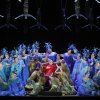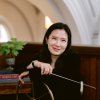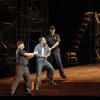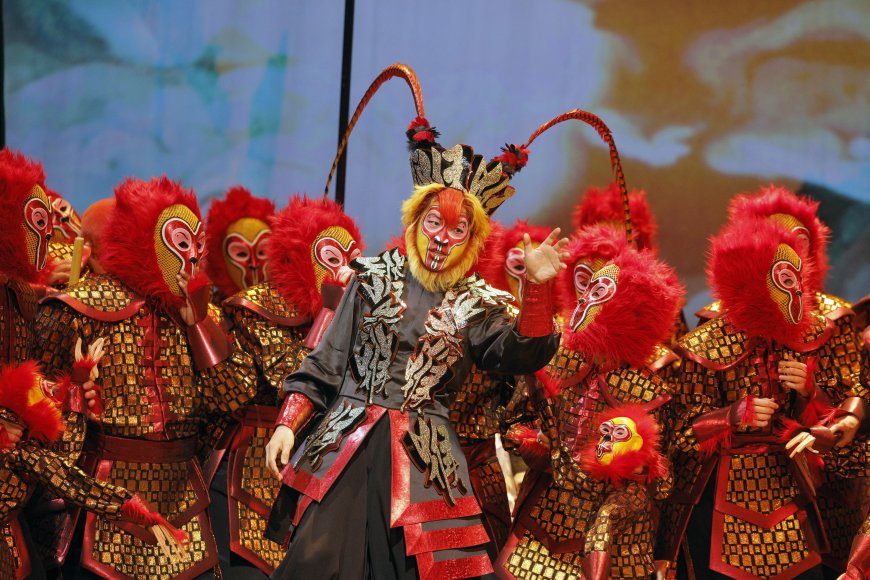
The Monkey King, a mythical Chinese character created by Wu Cheng’en in his 16th-century novel Journey to the West has been portrayed in films, manga and video games. But the mischievous hero has yet to star in a Western opera.
That all changes Friday, Nov. 14, with San Francisco Opera’s world premiere of composer Huang Ruo and librettist David Henry Hwang’s The Monkey King. The production presents the fanciful adventures of Sun Wukong, the Monkey King, who through many comic escapades — from the seas to heaven — comes to understand Buddhist teachings, freeing himself from his own prison.
But while the Monkey King may be a comedic trickster, for Hwang his humor carries a deeper truth about identity and defiance.
"The Chinese character is supposed to be humble and self-effacing, and Monkey's exactly the opposite,” he notes. “The fact that he has been so beloved for so many generations suggests that he kind of represents, maybe, the Chinese Id. Yes, he has to learn discipline by the end, but he is beloved for the degree to which he is rebellious.”
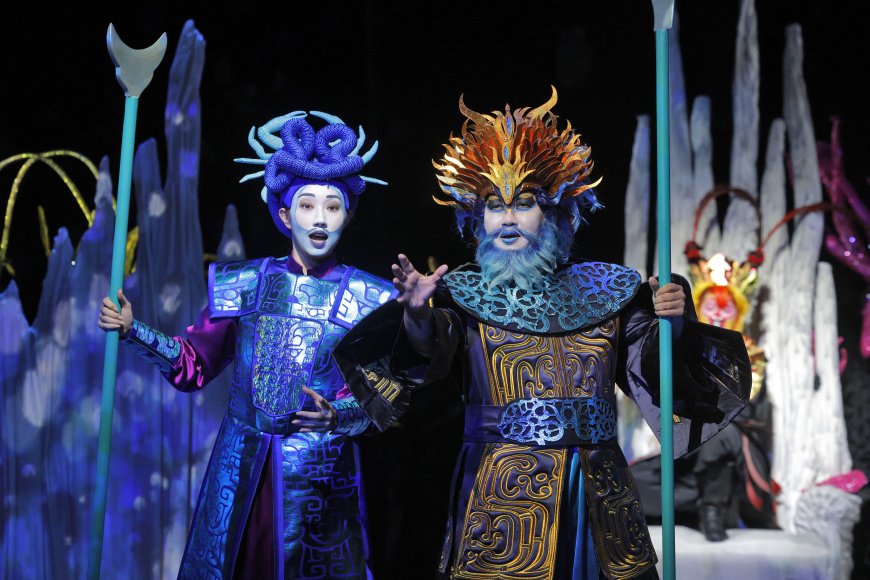
That sense of joyful rebellion is just one element pop culture expert and opera aficionado Frank Djeng underscores in his San Francisco Opera program notes for the production. He has traced the Monkey King’s history and influence through centuries of art and argues he’s more significant to the zeitgeist than anyone the Marvel Cinematic Universe could produce at the box office
"There are trickster gods, and then there’s Sun Wukong who makes Loge — the Norse God of mischief in Wagner’s Das Rheingold (a.k.a. Loki, in the Marvel Comics Universe) — look like a rank amateur,” he writes.
Co-commissioned with the Chinese Heritage Foundation of Minnesota, the San Francisco Opera production boasts a dream team of collaborators. It features Tony Award-winning director Diane Paulus at the helm, puppetry design by MacArthur “Genius” and Guggenheim Fellow Basil Twist, and projection design by Tony Winner Hana S. Kim. The result is a show that is arguably as ambitious and complex as Wagner’s Ring.
“There are many layers of storytelling here,” Paulus explained. “As a director, I always love those things that feel impossible,” she added, noting the challenge of figuring out, “‘How are we ever going to be floating in the clouds and flying and then multiplying?’”
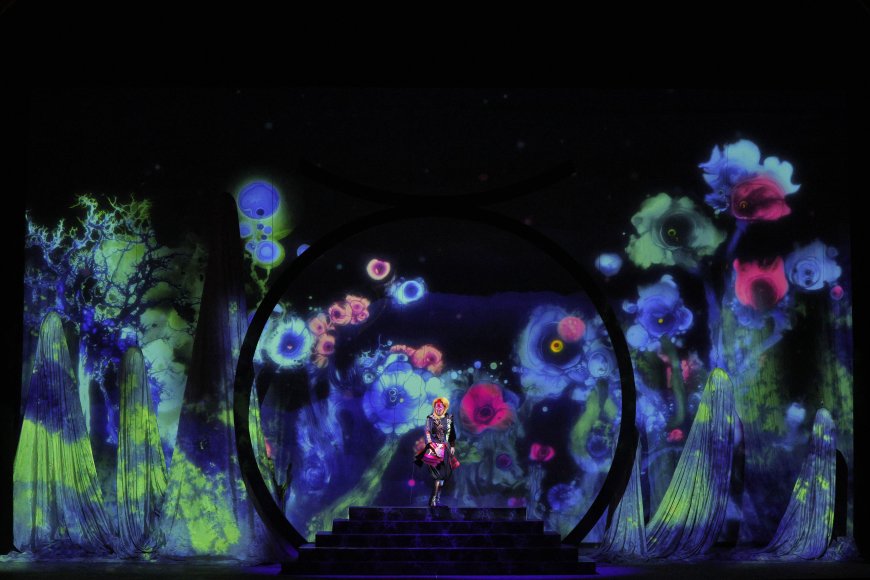
That sense of wonder is exactly what Huang said audiences will see realized onstage. “Hana’s projections, combined with Basil’s puppetry, makes the stage so dynamic and dimensional that the world looks real.”
With Australian Chinese tenor Kang Wang portraying the title character, South Korean tenor Konu Kim as the Jade Emperor and Chinese soprano Mei Gui Zhang as Guanyin, The Monkey King is uplifted by a cast of Asian heritage. Most of the creative team are also from the Asian diaspora, including Chinese American conductor Carolyn Kuan, Asian American choreographer Ann Yee and Peking operatic dance specialist Jamie Guan from Beijing.
“Opera is such a European art form. But then you have to ask, ‘What makes American opera distinct?’ To me, multiculturalism is one of the styles of American opera, with so many diverse voices and creators from different communities,” Huang said.
For Hwang, that spirit of diversity isn’t just a value but a creative engine.
“In terms of creating the best show possible, I believe that DEI (Diversity, Equity and Inclusion) is about diversity, excellence and inclusion,” said Hwang, who first worked with the Opera in 2016 as co-librettist of an adaptation of Dream of the Red Chamber.
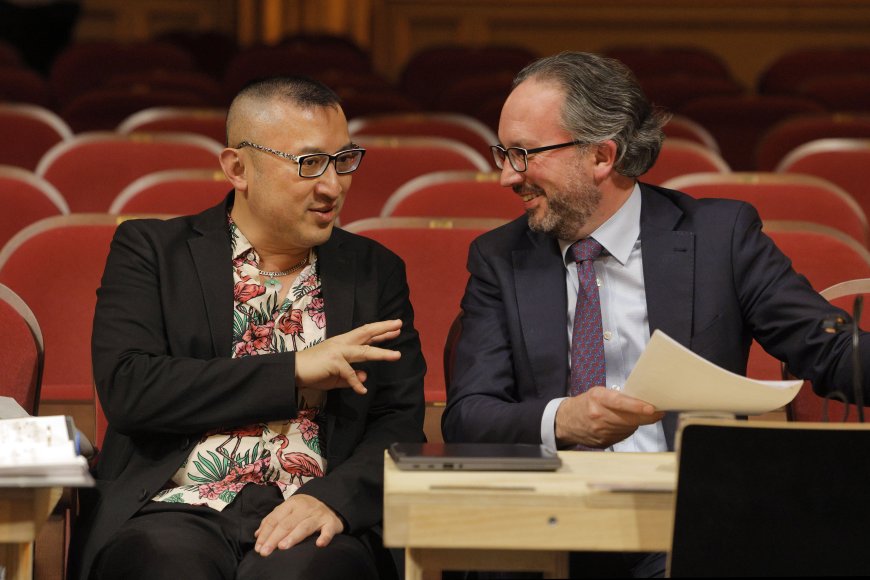
“When you reach out in that way and you create those opportunities, you find these artists who haven't been allowed through by the gatekeepers but who are every bit as, if not more, excellent than the usual cast of characters,” he continued.
The composer and librettist have teamed up on four prior works, including a musical reimagining of Hwang’s Tony-winning play M. Butterfly and the one-act The Rift about Vietnam Veterans Memorial architect Maya Lin.
“I think we do have a shorthand by now,” Hwang said. “I trust [composer Huang]. He has really good theatrical instincts.”
(The recording of Huang’s opera An American Soldier, also with a libretto by Hwang, was recently nominated for a Grammy Award in the Best Opera Recording category. On the recording, the American Composer's Orchestra is conducted by Kuan.)
Huang was first introduced to the Monkey King in the 1961 animated film Uproar in Heaven, which he loved to watch as a child on China’s Hainan Island. While in San Francisco for rehearsals, Huang reflected on how widespread the myth has since become.
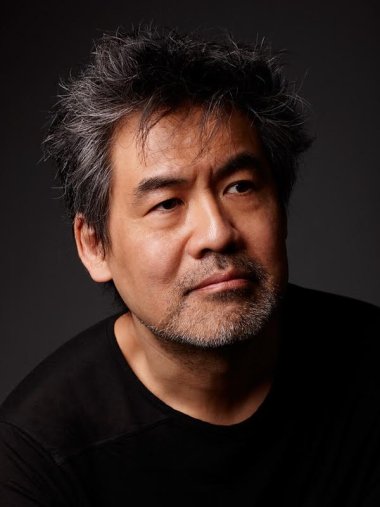
“I hired an Uber to Chinatown in hopes that I could get some mooncake during the Mid-Autumn festival,” he shared. “On the way, I saw two murals that people painted in graffiti art of characters from ‘Journey to the West.’ So, I certainly felt, ‘Wow! This legend is rooted in the culture of San Francisco, too.”
That sense of cultural continuity runs through both the work and its creators, many of whom share personal ties to the Bay Area despite being based in New York City.
Hwang earned his undergraduate degree in English from Stanford University and “spent some time afterward with the Asian American Theater Company, which was pretty formative for a lot of us,” he recounted. Huang’s Angel Island: Oratorio premiered at the Angel Island Immigration Station in 2021, with the commissioning Del Sol Quartet and the Volti choral ensemble.
But for Paulus, who is Japanese American, San Francisco carries a particularly special resonance.
“The first place [my Japanese relatives] came to when they emigrated to the United States was San Francisco,” she shared. “I have lots of family who are still here, and they're all coming to see ‘The Monkey King.’”
Yoshi Kato is a freelance writer. This article has been provided in partnership with San Francisco Chronicle.


